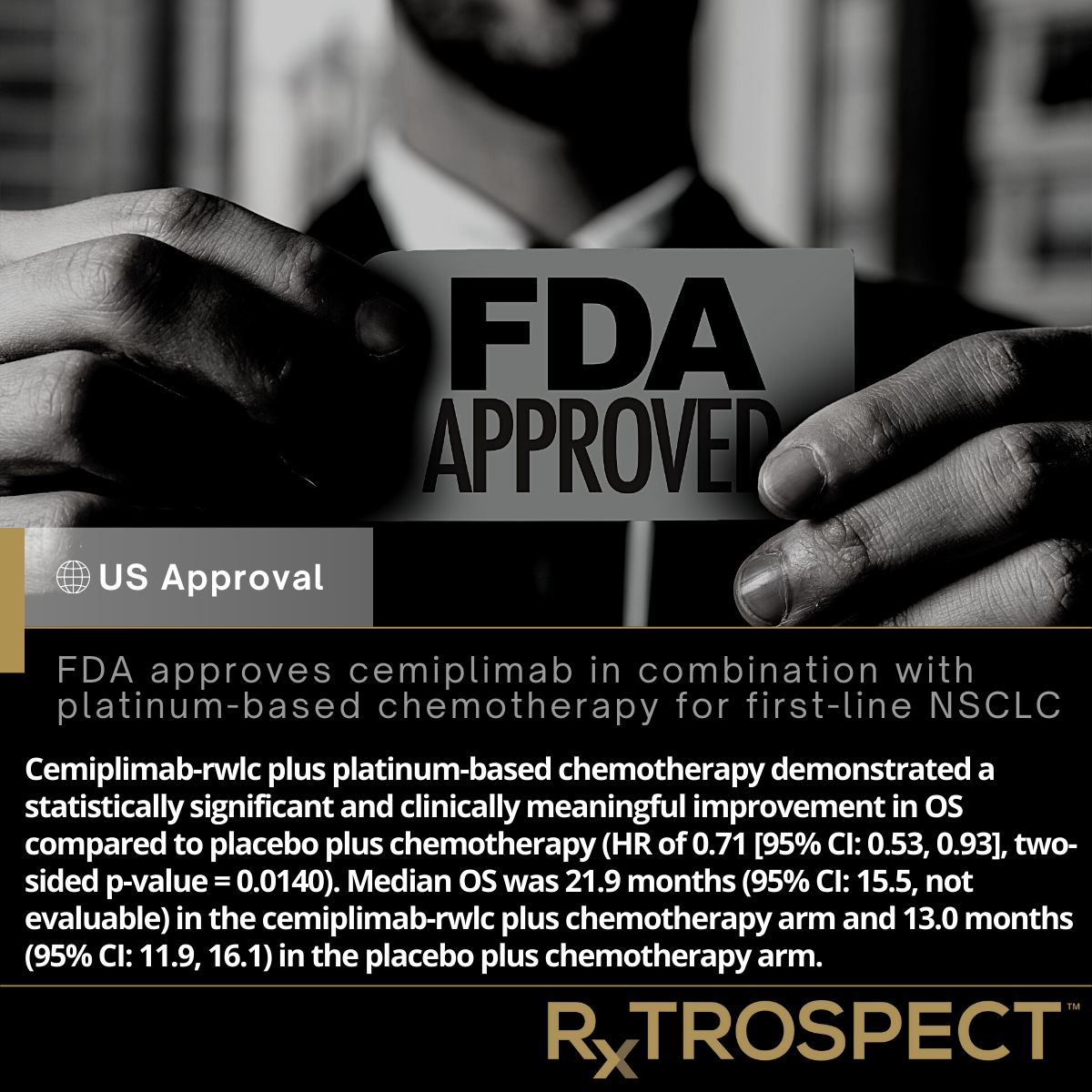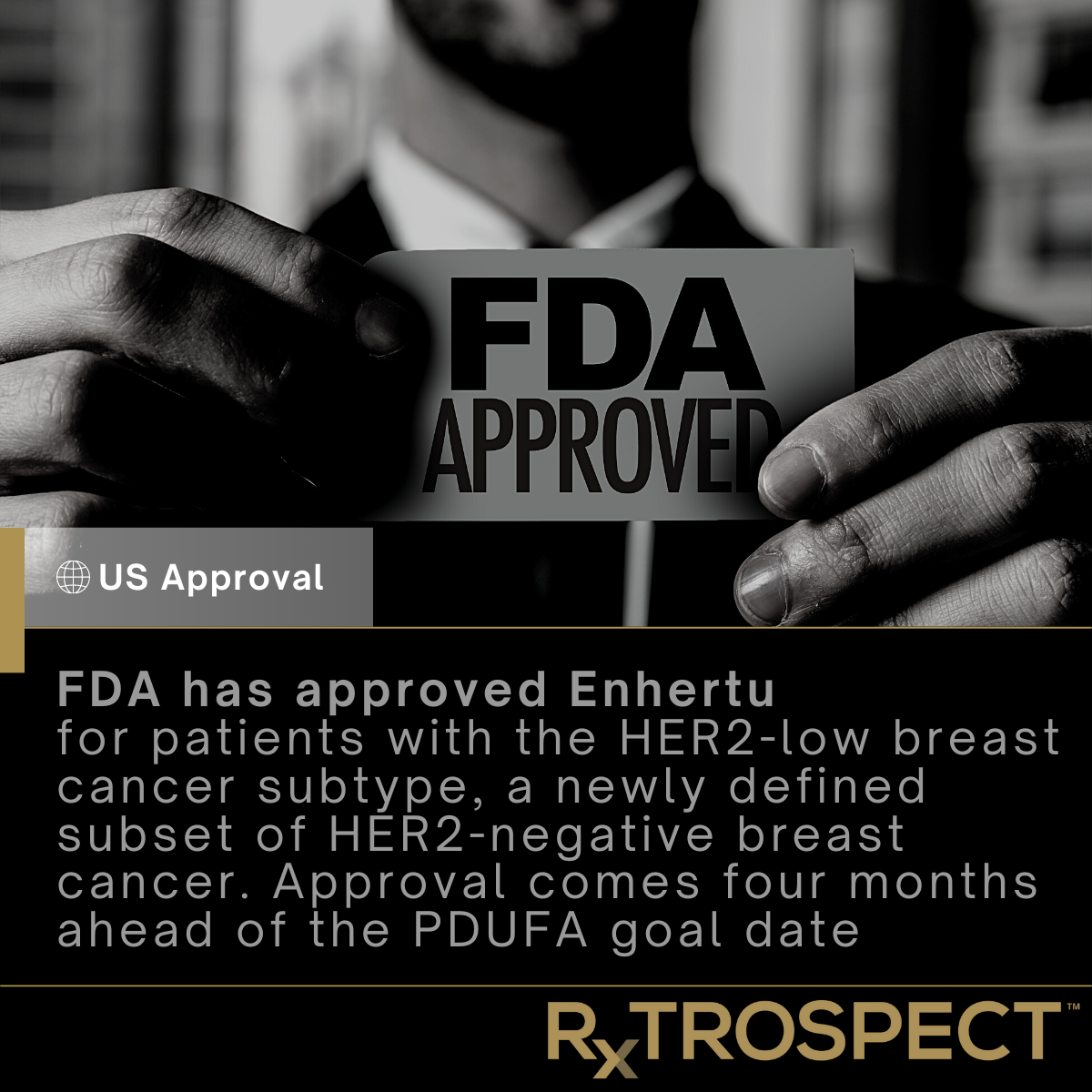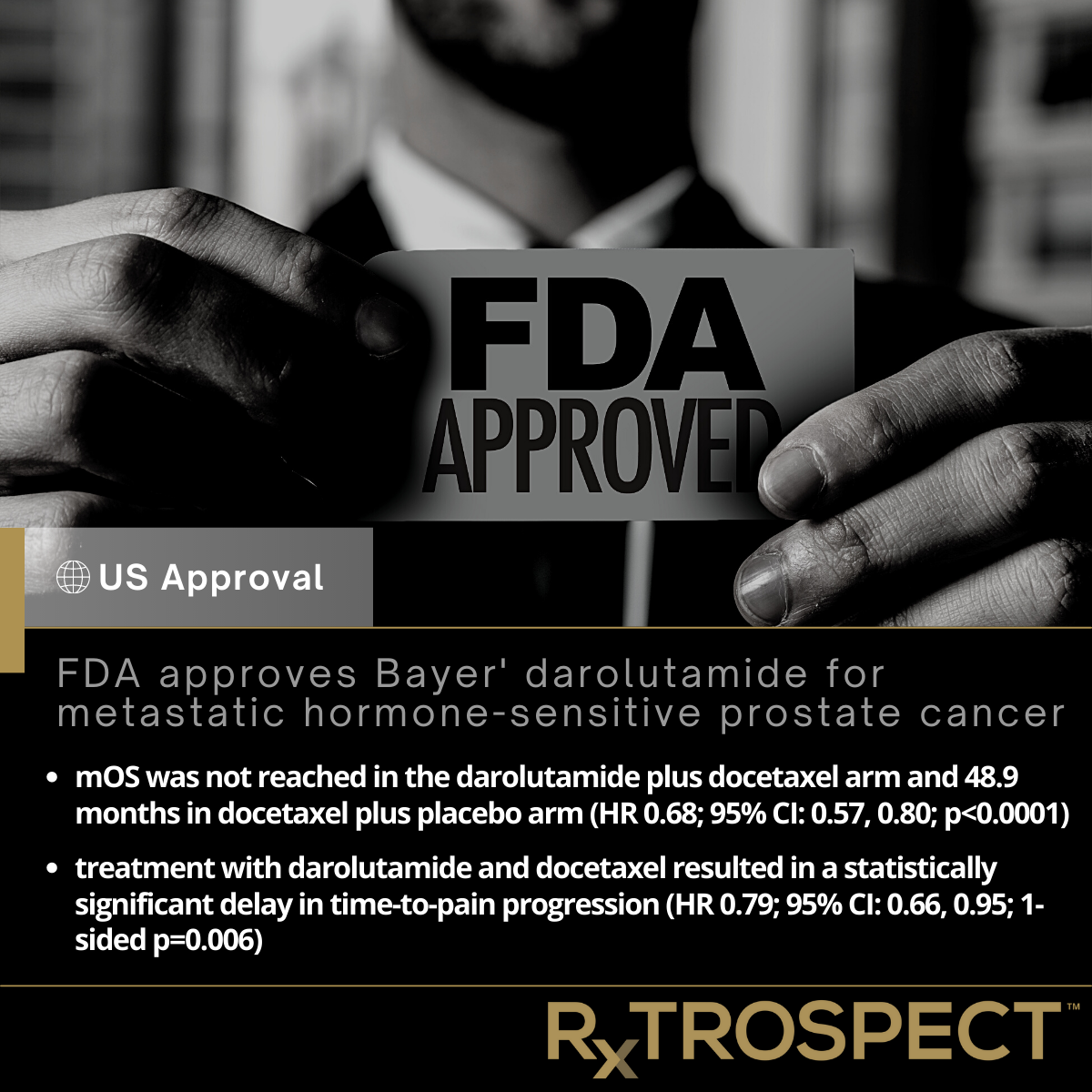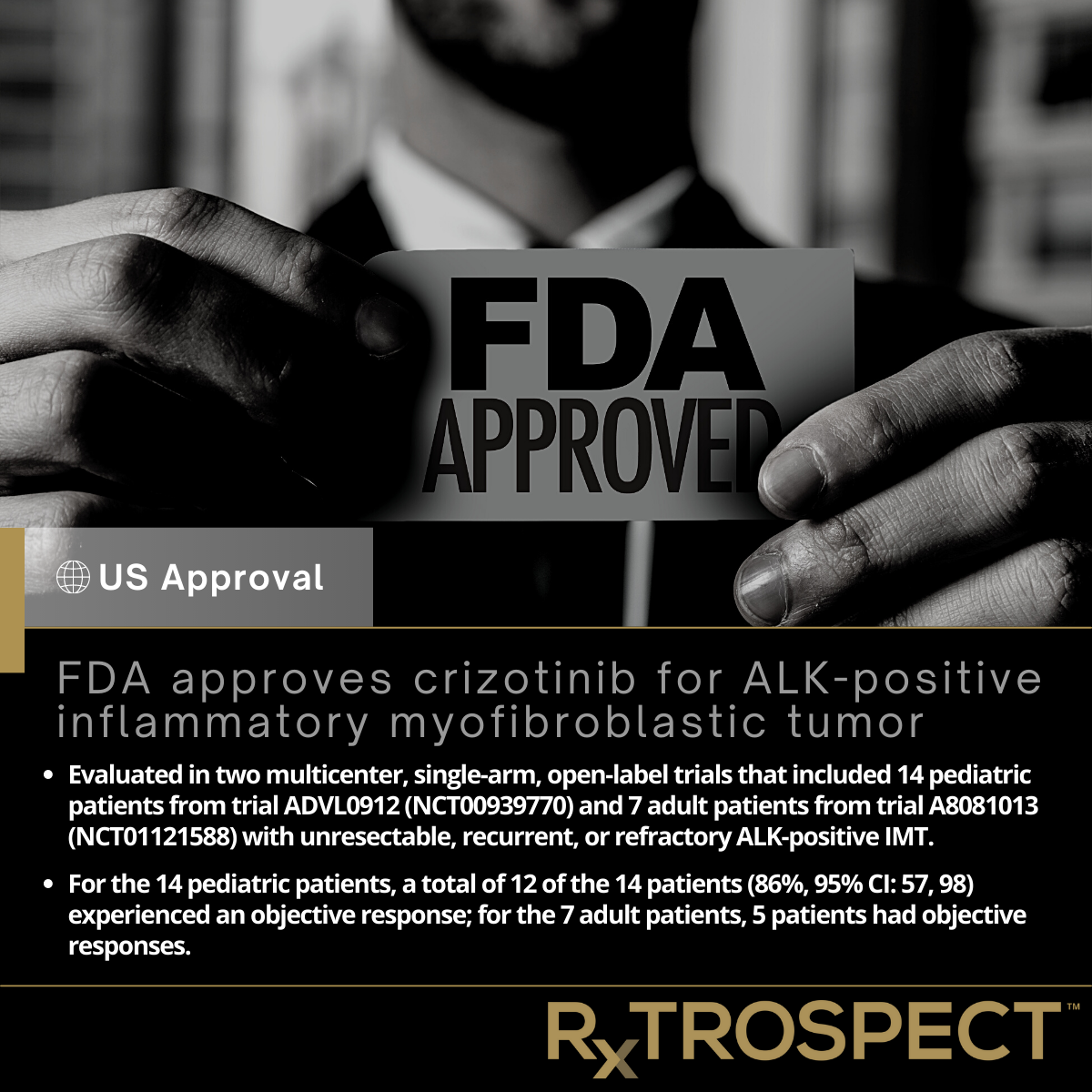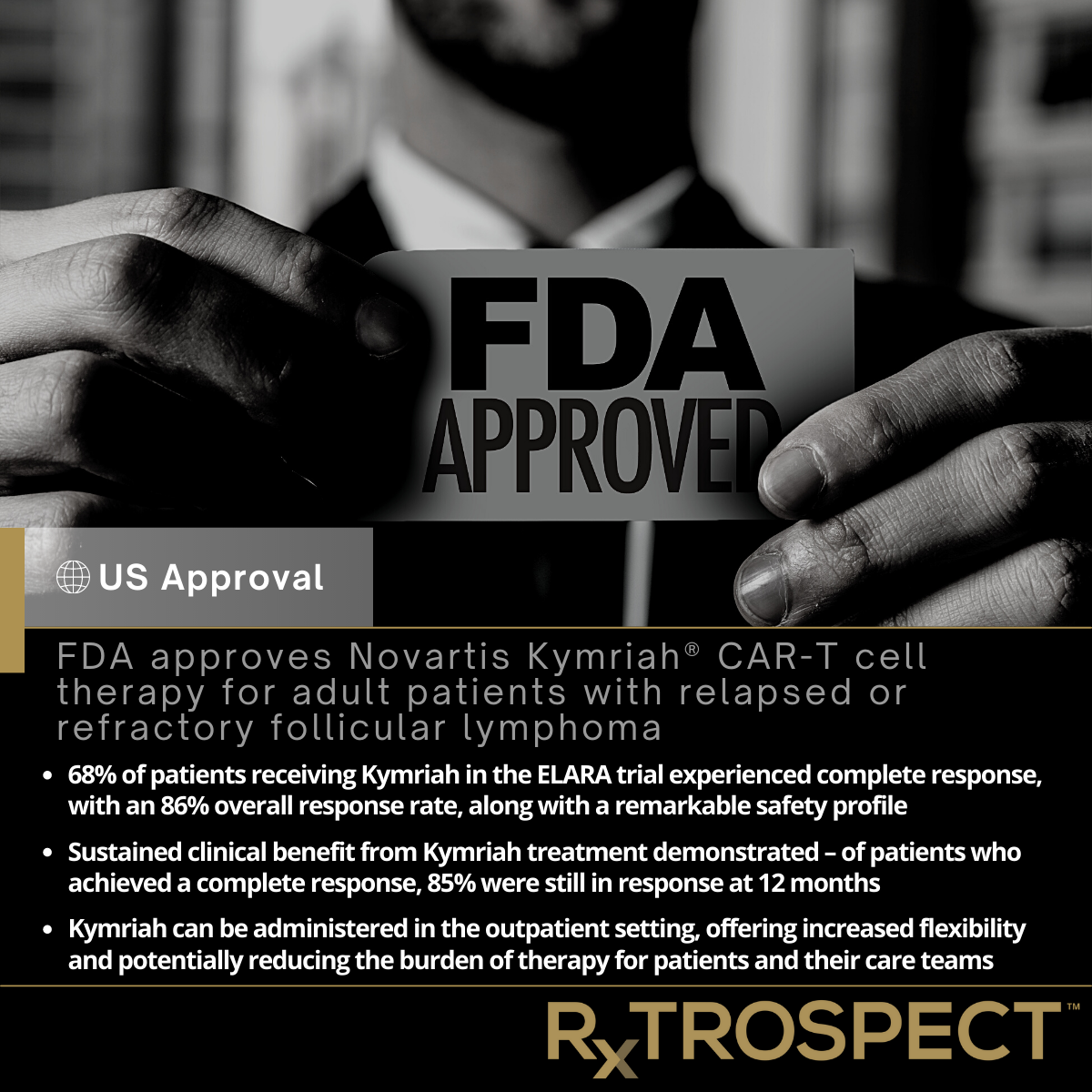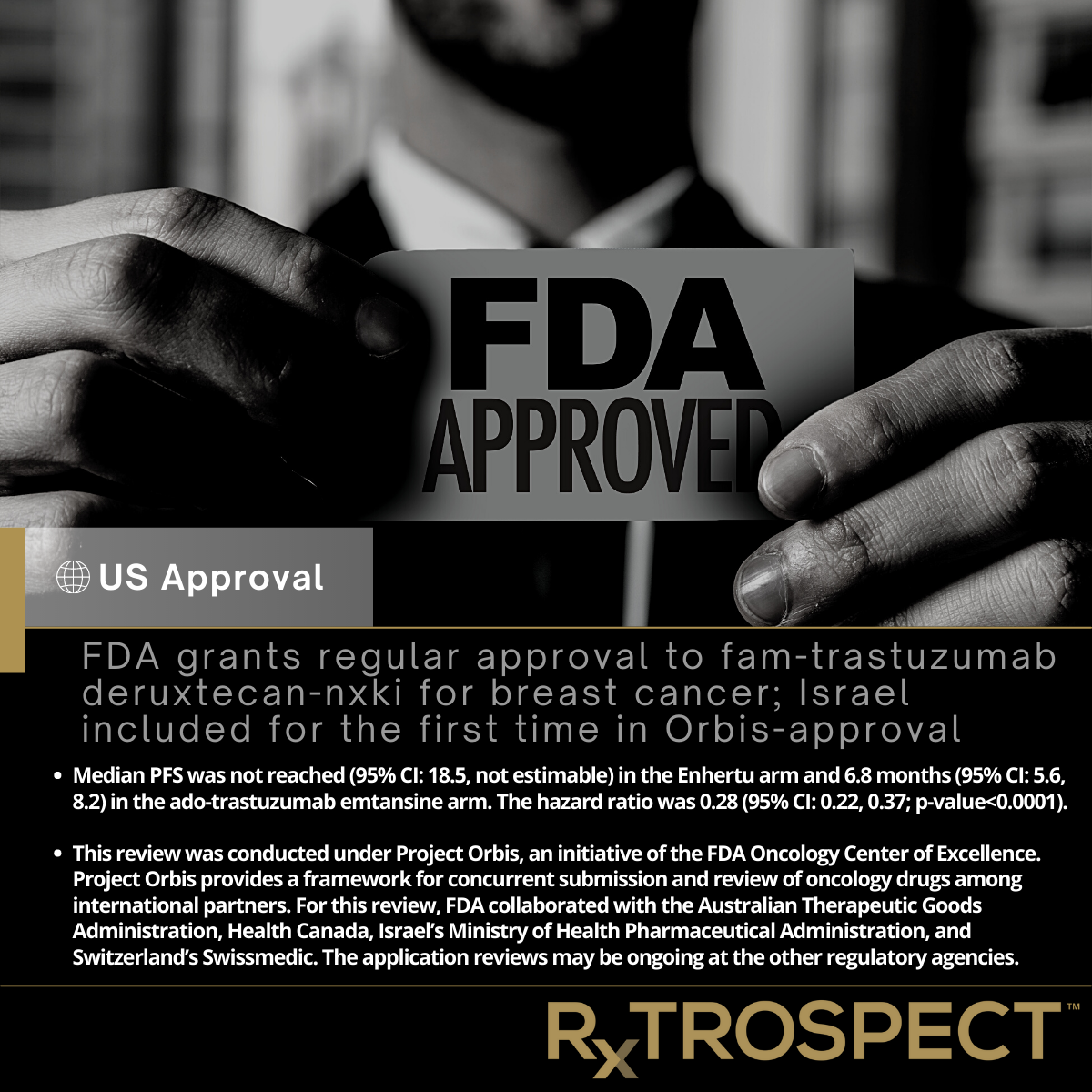Newsroom
RxTROSPECT Remembers 🌹
Tomorrow is "Remembrance Sunday"...
This day is celebrated every second Sunday of November, on November 13 this year. The closest Sunday to Armistice Day or Remembrance Day (November 11), Remembrance Sunday is held to celebrate the bravery of those who fought in World War I and II. We look back on the peace that was restored by the action of these men and women — an act of bravery and courage we will never forget.
FDA approves cemiplimab in combination with platinum-based chemotherapy for first-line NSCLC
FDA approves cemiplimab in combination with platinum-based chemotherapy for first-line NSCLC
Cemiplimab-rwlc plus platinum-based chemotherapy demonstrated a statistically significant and clinically meaningful improvement in OS compared to placebo plus chemotherapy (HR of 0.71 [95% CI: 0.53, 0.93], two-sided p-value = 0.0140). Median OS was 21.9 months (95% CI: 15.5, not evaluable) in the cemiplimab-rwlc plus chemotherapy arm and 13.0 months (95% CI: 11.9, 16.1) in the placebo plus chemotherapy arm.
FDA has approved Enhertu for patients with the HER2-low breast cancer subtype
FDA has approved Enhertu for patients with the HER2-low breast cancer subtype, a newly defined subset of HER2-negative breast cancer. Approval comes four months ahead of the PDUFA goal date
FDA approves Bayer' darolutamide for metastatic hormone-sensitive prostate cancer
FDA approves Bayer' darolutamide for metastatic hormone-sensitive prostate cancer
mOS was not reached in the darolutamide plus docetaxel arm and 48.9 months in docetaxel plus placebo arm (HR 0.68; 95% CI: 0.57, 0.80; p<0.0001)
treatment with darolutamide and docetaxel resulted in a statistically significant delay in time-to-pain progression (HR 0.79; 95% CI: 0.66, 0.95; 1-sided p=0.006)
FDA approves crizotinib for ALK-positive inflammatory myofibroblastic tumor
FDA approves crizotinib for ALK-positive inflammatory myofibroblastic tumor
Evaluated in two multicenter, single-arm, open-label trials that included 14 pediatric patients from trial ADVL0912 (NCT00939770) and 7 adult patients from trial A8081013 (NCT01121588) with unresectable, recurrent, or refractory ALK-positive IMT.
For the 14 pediatric patients, a total of 12 of the 14 patients (86%, 95% CI: 57, 98) experienced an objective response; for the 7 adult patients, 5 patients had objective responses.
Yescarta® (axicabtagene ciloleucel) gains EU approval for the treatment of adult patients with relapsed or refractory (3L+) FL
Yescarta® (axicabtagene ciloleucel) gains EU approval for the treatment of adult patients with relapsed or refractory (3L+) FL
Among patients who had received three or more lines of prior therapy (n=75), the ORR was 91%, CR rate was 77% at the 24-month analysis
mDoR was 38.6 months, and the proportion of responders still in response at Month 24 was 56%
FDA approves Novartis Kymriah® CAR-T cell therapy for adult patients with relapsed or refractory follicular lymphoma
FDA approves Novartis Kymriah® CAR-T cell therapy for adult patients with relapsed or refractory follicular lymphoma
68% of patients receiving Kymriah in the ELARA trial experienced complete response, with an 86% overall response rate, along with a remarkable safety profile
Sustained clinical benefit from Kymriah treatment demonstrated – of patients who achieved a complete response, 85% were still in response at 12 months
Kymriah can be administered in the outpatient setting, offering increased flexibility and potentially reducing the burden of therapy for patients and their care teams
FDA grants regular approval to fam-trastuzumab deruxtecan-nxki for breast cancer; Israel included for the first time in Orbis-approval
FDA grants regular approval to fam-trastuzumab deruxtecan-nxki for breast cancer; Israel included for the first time in Orbis-approval
Median PFS was not reached (95% CI: 18.5, not estimable) in the Enhertu arm and 6.8 months (95% CI: 5.6, 8.2) in the ado-trastuzumab emtansine arm. The hazard ratio was 0.28 (95% CI: 0.22, 0.37; p-value<0.0001).
This review was conducted under Project Orbis, an initiative of the FDA Oncology Center of Excellence. Project Orbis provides a framework for concurrent submission and review of oncology drugs among international partners. For this review, FDA collaborated with the Australian Therapeutic Goods Administration, Health Canada, Israel’s Ministry of Health Pharmaceutical Administration, and Switzerland’s Swissmedic. The application reviews may be ongoing at the other regulatory agencies.




